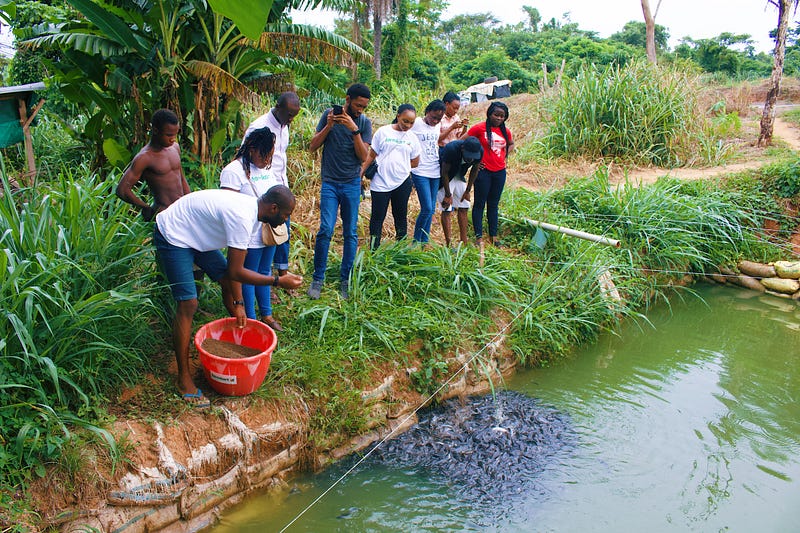Farmkart 2.0
Building an investment vehicle for agriculture through crowdfunding at Farmkart.ng
The passion for agriculture runs within our family. My late dad worked with Mitchell Farms in the ’80s where he was a sales executive. I saw an increasing demand for livestock consumption in Nigeria as well as youths who lacked interest in farming. In my further studies, I realised our production and consumption rates were not aligned.

Regardless of my role as IT Support in NNPC Zonal Office in 2012, I started Farmkart in December 2015 which was the only viable and acceptable investment for public servants in Nigeria. My passion for agriculture grew and in December 2016, I quit my job and fully focused on building Farmkart.

At Farmkart we are building an investment vehicle for agriculture through crowdfunding. Our goals are to make an impact on food security, support our local farmers by creating capital and jobs as well as promoting youth inclusion in agriculture.

We launched with aquaculture focusing on catfish because from my research Nigeria is the highest importer of Fish products in Africa and the 4th largest in the world after China, Japan and the USA. Our annual fish demand is estimated at 3.3 million metric tons and with our production capacity at 1.2 million metric tons, there is a gap in supply of 2.1 million metric tons. 80 per cent of fish produced in Nigeria are catfish which shows the demand for more local production.

The Farmkart investment model has been tested for 2 years with Investors, and we learned how best to reduce risks, secure investments and optimize returns. We are now ready to increase our production capacity to make a greater impact.

Our management team is currently made up of myself Jesse Osiobe, Evans Akanno (CEO Cregital) and Temitope Aina (ex Sahara Energy). With our experiences in various areas of work, we have put together the expertise to build a viable business for Farmkart.

We invite you to join us on this journey to promoting youth inclusion in agriculture, enhancing food security for our rapidly expanding population, decreasing carbon footprint from importation and boosting Nigeria’s economy.
